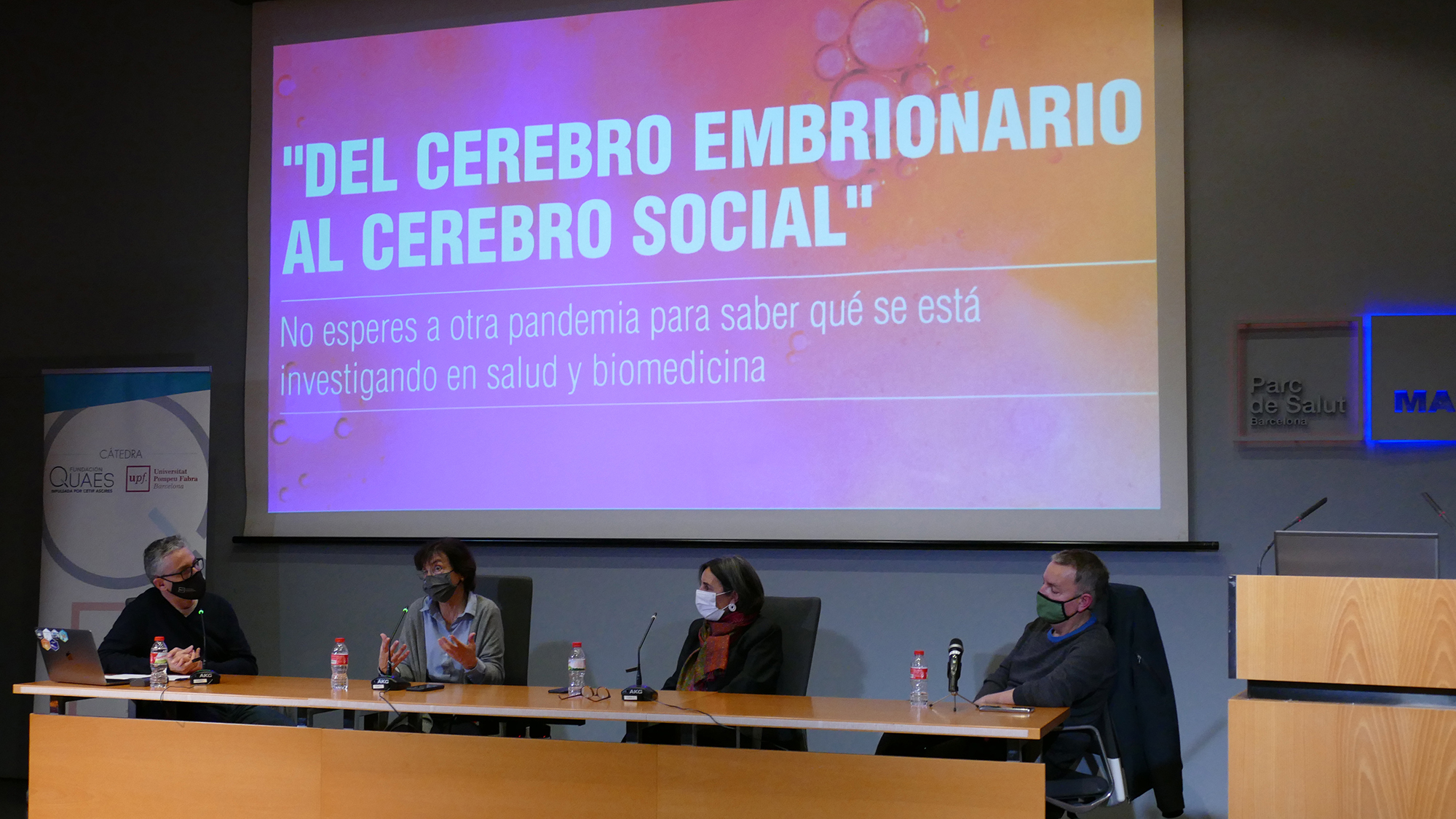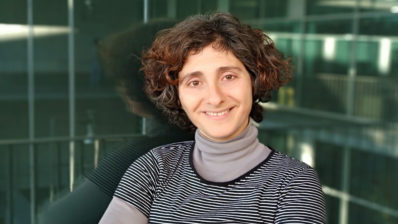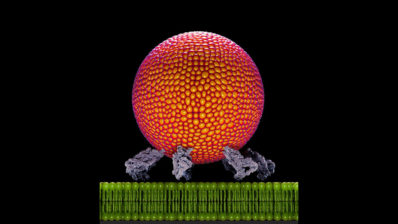Due to the coronavirus pandemic, a big part of society has become interested in questions that previously seemed alien to them: how viruses reach human cells, what a clinical trial is, how vaccines work. Wouldn’t it be better to be aware of such important issues on a regular basis, without having to wait for another pandemic?
It was this reflection that motivated the series of talks “Don’t wait for another pandemic“, organized by the Department of Medicine and Life Sciences, Pompeu Fabra University (MELIS-UPF) with the collaboration of the Spanish Foundation for Science and Technology (FECYT) – Ministry of Science and Innovation. This initiative was designed precisely to create a space for constant dialogue between the scientific community and society.
The program consisted of nine sessions distributed throughout the course, one each month. The format has been hybrid, a face-to-face event at the Campus Universitario Mar with live streaming. The videos of all the sessions (in Spanish or Catalan) are also available on the initiative’s website.
“This cycle has allowed us to bring society closer to the great diversity of biomedical research that is carried out in the Barcelona area and particularly in the MELIS-UPF and the PRBB environment where it resides”
Robert Castelo, project coordinator (UPF)
In the words of Gema Revuelta, researcher at the MELIS-UPF, “one of the main functions of the University is the transfer of knowledge generated by its research groups. This program has precisely this mission, allowing us to increase the social impact of our research”.
Research at UPF: Covid-19 and beyond
The first two sessions were related to the pandemic. Fernando G. Benavides (UPF), Denise Naniche (Barcelona Institute for Global Health (ISGlobal)) and Vicente Ortún (UPF) opened the cycle with a dialogue on inequalities and Covid-19 from the points of view of Public Health and Economics in the session “Pandemic or syndemic: covid-19 is not the same for everyone“.
In “The new era of mRNA vaccines?“, the speakers Marta Sisteré (UPF), Robert Güerri (Hospital del Mar) and Montserrat Plana (IDIBAPS) addressed the technology of mRNA vaccines, their safety, their application to other diseases and the development process of one of the vaccines against covid-19 locally developed.
Subsequent sessions dealt with diverse topics such as the positive applications of viruses, genetic diseases or neuroscience. In December Juana Díez Antón (UPF) and Ángel Montero Carcaboso (Institut de Recerca Sant Joan de Déu) focused on the kinder side of viruses in the talk “Viruses, friends too?“. They explained the essential role of viruses in the health of both our planet and ourselves. They also talked about the exciting path taken to make possible a new experimental treatment for retinoblastoma, the retinal cancer.
“The hidden face of our genes” was the January session, organized together with the Eugin-UPF Chair. Rita Vassena (Eugin) and Francesc Calafell (UPF) discussed how hereditary alterations in genes can cause rare and serious diseases and how assisted reproduction techniques can prevent these diseases from being passed on to children.
On the occasion of the Day of Women and Girls in Science, the February session was entitled “Are we integrating the gender perspective in biomedical research?“. Speakers Gema Revuelta (UPF), Pilar Ausín (Hospital del Mar Medical Research Institute (IMIM)– Hospital del Mar) and Verònica Casadó (UPF) reflected on how the gender perspective can be applied to the different phases of biomedical research. They also shared best practices and success stories in clinical and basic research.
Within the framework of the Brain Week, the theme for March was “From the embryonic brain to the social brain“. Cristina Pujades (UPF), Òscar Vilarroya (Universitat Autònoma de Barcelona and IMIM) and Carme Torras (Institute of Robotics and Industrial Informatics UPC-CSIC) focused on how neural circuits are built and established, the study of brain structure in adults and the challenges of Artificial Intelligence to help people. This session was organized together with the QUAES-UPF Chair.
The opportunities and risks of social networks, how they can affect our health or how they can allow us to detect diseases were the main issues addressed in the session “Internet and health: opportunities and risks“, with speakers Ferran Sanz (UPF-IMIM), Liliana Arroyo (Fundació i2cat and ESADE) and Manuel Armayones (UOC).
The last two sessions were organized together with the QUAES-UPF Chair. In “The genetic fingerprint of diseases“, David Comas (UPF and IBE), Araceli Rosa and Ferran Casals (UB) discussed why there are diseases that are common in all human populations while others only occur in some populations. They also addressed the origin of complex diseases such as obesity, schizophrenia or depression.
The series concluded with “The current situation of cancer: a constant epidemic“. Ana Janic (UPF), Toni Celià-Terrassa (IMIM- Hospital del Mar), José Ramón García Garzón (Cetir Ascires) and Antonio García de Herreros (IMIM – Hospital del Mar) spoke about immunotherapy, precision radiotherapy, the molecular mechanisms of metastasis and the role of tumor suppressors.
Educational materials consisting of 6 short videos related to three of the sessions have also been shared on the web page of the series. We invite you to visit it!






